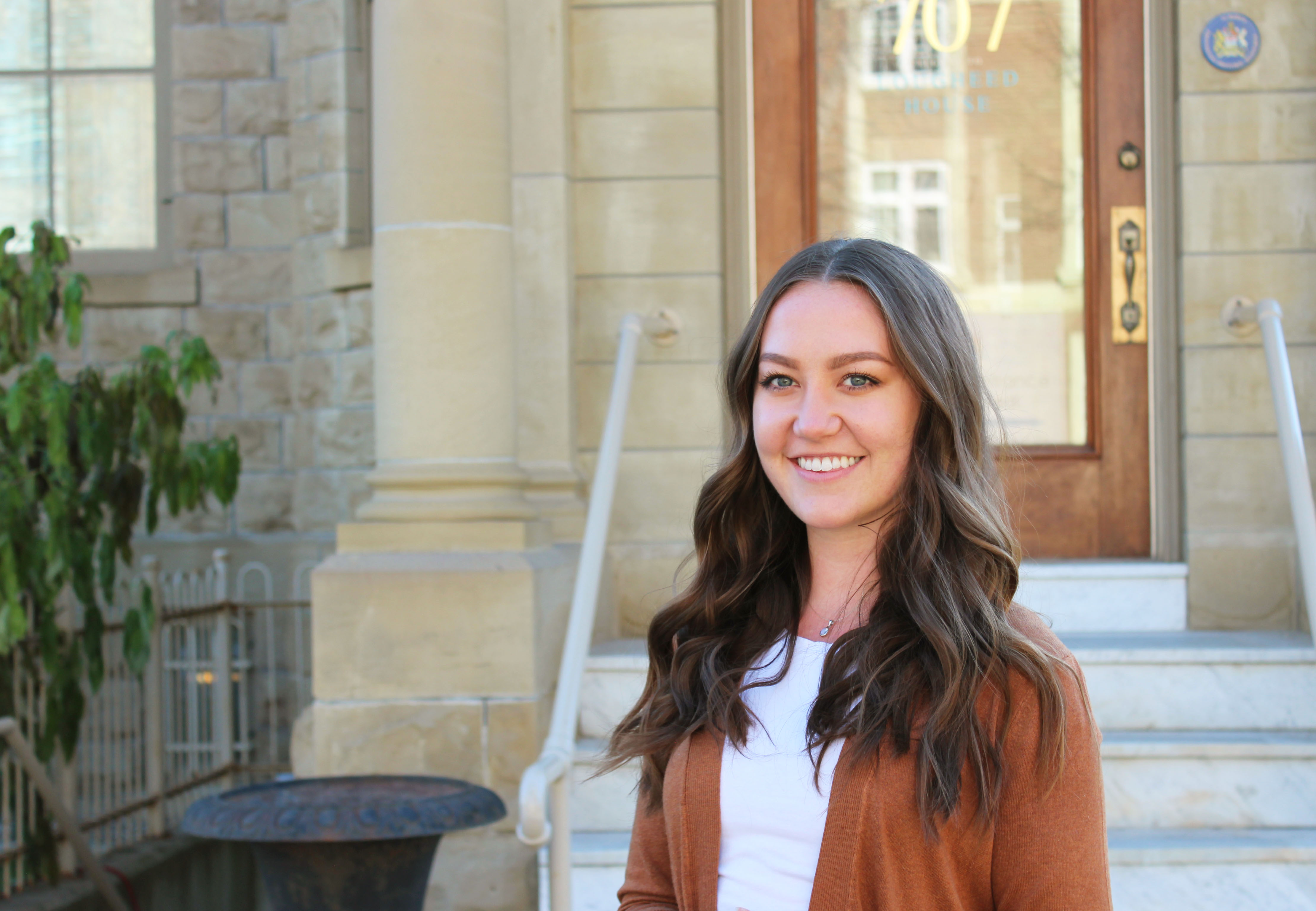Fall 2021 Convocation Spotlight: Alexandra Ouellette Zuk, ‘21 MSc, Neuroscience
Adrianna MacPherson - 18 November 2021

Alexandra Ouellette Zuk, ‘21 MSc, Neuroscience
Alexandra Ouellette Zuk’s path to the field of neuroscience was sparked by a simple fascination that she’s had ever since she was a child—people-watching. “I love watching the people around me and when I realized there was one organ [the brain] that contributed to the unique and diverse lived experiences around us, I knew that I just had to know more. That’s what drove me to get into neuroscience.”
Ouellette Zuk’s research focused on decision-making and the unfolding processes that underlie it, as well as how those processes impact our behaviours and physical actions. A student in the Neuroscience and Mental Health Institute’s graduate program, Ouellette Zuk did her research in the Action in Complex Environments Laboratory (ACElab) under the supervision of Craig Chapman. The ACElab studies movements to understand thoughts, using technology such as motion-tracking and eye-tracking to provide a comprehensive picture of natural movement decision-making. She also had the unique experience of completing a large portion of her master’s work during the pandemic, requiring her to almost completely rethink her approach, something she considered a huge learning opportunity. She celebrated defending her degree with a weeklong family camping trip—no phones, no computers, no service, just time to disconnect, enjoy nature, and prepare for the next chapter in her academic journey.
Read more here about Ouellette Zuk’s grad-school experiences, from the relationships she cultivated to the secret study spots she coveted, and the advice she has for future graduate students.
Who have some of your mentors been?
I was extremely lucky to have found a supervisor [Chapman] who is an absolutely wonderful mentor. He really went above and beyond in his supervision, was very involved and would speak very openly about careers in academia and the variety of paths you can take to get to different places, driving home that nothing is a straight path. He was somebody who I always felt I could go to with anything, and I still find myself reaching out at times asking for meetings just for those words of advice when I need them.
Were there any on-campus experiences that stood out to you?
The U of A campus is absolutely beautiful. I would spend every spare minute between classes and research tasks wandering around, trying to find that new secret spot to study or new thing I hadn’t known about. I’d spend time on the upper levels of CCIS finding mineral displays, or in Earth Sciences looking at fossils, or even Athabasca Hall, which happens to have the most beautiful study room. That was kind of my guilty pleasure when I needed to disconnect—spending that time just exploring the campus.
What impact did your involvement in NMHI have on your studies?
[The interdisciplinary aspect of the NMHI] was something I really appreciated because it forced you to step outside your niche. This was exemplified even in how my thesis committee was formed. I had committee members from all different departments. Taking a step outside of your niche and explaining your research to a psychologist, or to somebody with expertise in computing sciences or who works more purely in the world of physical movement makes you approach your research differently. It makes you ask different questions and helps you develop a communication style that is perhaps slightly more universal. Interdisciplinary programs like these also allow you to meet other graduate students who are doing things that weren’t remotely on your radar until the program brought you together. Connections like these bring new learning opportunities and create excitement for all the interesting research happening around you.
What advice would you give to graduate students?
I think maybe the pandemic really highlighted this, but balance is extremely important. Graduate studies are much more self-driven, and this means it’s a great time for your personal growth as a human being as well as your growth as an academic. For me that meant finding extracurriculars that excited me, finding what helped me relax and decompress, and exploring things outside my research area by taking extra classes, attending seminars, things like that.
What’s the next chapter for you?
I’m currently working as a technical research assistant and project coordinator out of the University of Calgary, which has been a wonderful position—I am learning so much. I am also wanting to continue with school, so the next step is on to doctoral studies. My hope is to bring together two worlds that interest me—one side being the neuroscience-heavy side that I currently exist in, learning detailed information about the brain and how it works, and the other side being clinical psychology, exploring what makes us tick as humans. The goal for my studies moving forward is to bring those two together.